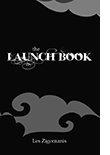 I’ve worked with a number of authors privately and through Busybird, and something many of them don’t seem to understand is that writing the book is the easy bit. It mightn’t seem that way, but at least when you’re writing, you have a clear objective: finish the book.
I’ve worked with a number of authors privately and through Busybird, and something many of them don’t seem to understand is that writing the book is the easy bit. It mightn’t seem that way, but at least when you’re writing, you have a clear objective: finish the book.
Then what? After all the editing and revision, and your book’s finally been printed, what’s next?
Many have the belief that the book will sell itself.
But that begs the question: Why?
You might have a great idea – it may be the next phenomenon – but why are people going to buy it? When it sits in a bookstore amongst hundreds of other books (and with more new books coming in daily), what is going to compel somebody to pick it up? What is going to alert not just one person to its existence, but the masses?
Luck?
Sure, that’ll help. And, you know, some things just take off, a maelstrom of right time, right place, right market. But you can’t rely on luck. Nobody really knows why things go viral. It just happens. And if you’re going to rely on blind fortune, you’re doing your book an injustice.
Being a success is the result of hard work and constantly selling yourself, constantly putting yourself – and your book – out there. If you can afford a publicist to help you with this, great. But publicists cost a lot of money (more than one thousand dollars a month), and that’s something most authors can’t afford, so you’re left to your own devices.
Let’s look at some options …
A Launch
 A book launch is when you announce your book’s arrival to the world, just the way you would if you had a baby. Have a party. Invite people. Broadcast it everywhere – social media, in relevant newsletters, even in forums that might be applicable to your book (e.g. bookstores, or if you wrote a nonfiction book about dogs, ask the vet if you leave some flyers there).
A book launch is when you announce your book’s arrival to the world, just the way you would if you had a baby. Have a party. Invite people. Broadcast it everywhere – social media, in relevant newsletters, even in forums that might be applicable to your book (e.g. bookstores, or if you wrote a nonfiction book about dogs, ask the vet if you leave some flyers there).
Review Copies
Send free copies of your book to reviewers – from the major newspapers to radio and podcast reviewers to bloggers. There’s a chance your book won’t be reviewed – after all, these people are getting lots of books to review. But you won’t know unless you try. Also, because these people have a backlog, make sure you send your book as early as you can.
Public Talks
Lots of places are open to authors talking about their work. Amongst them:
- the library
- bookstores
- community newspapers
- community radio
- podcasts
- magazines
- blogs.
Seek out any opportunity you can. Some forums may pay, but that’s not your goal here. You’re trying to develop goodwill and expand the awareness about you and your book.
Pitch to Magazines and Websites
If you’ve written a nonfiction book – say you’ve written a guide to real estate – then look at markets where you can pitch and write articles about your specialty. Somebody reads your article, they like what you’re saying, they’re going to track down your book.
You can still do this if you’re a fiction author. Diversify. You might’ve written an espionage novel where you researched CIA operations – you could write about the importance of research. Or the CIA. Alternatively, you could try submitting short stories to journals.
Look for Any Relevant Opportunities
I had one children’s author who wrote books featuring positive messages for kids – amongst them, eat healthy and naturally. She was regularly at farmers’ markets and schools, pitching her message and getting her name – and her books – out there. She was constantly pushing herself, her book, and her message. Think about how you can get yourself out there.
Open Mic Nights / Readings
Track these down. Read an excerpt from your book. Bring a stack of copies with you. If people like what they hear, they might ask to buy a copy.
Develop an Online Presence
Start a Facebook page: YOUR NAME – AUTHOR. Spruik what’s happening with your book, if you’re making appearances, if you’re working on something new, what’s happening with your book, etc. If you can afford it, start your own website and blog. Post extracts of your work. Go on Twitter. Follow people relevant to your work – other authors, agents, publishers. Tweet updates.
Ultimately …
The pattern’s easy to identify. Get yourself out there. Get your book out there. Look at ways to publicise yourself, either with the written word, or vocally.
If you were selling your house or your car, you wouldn’t just wait for people to stumble upon it. You’d advertise it. You’d be hustling constantly. The philosophy is the same behind your book.
The reality is you’re Joe Blow. Who knows you exist? Who knows your book exists? Seek out every possible opportunity to expand the world’s awareness to your existence.
Postscript: If you have time (about twenty-eight minutes), I highly recommend this Jennifer Byrne Presents …. Byrne interviews Bryce Courtenay, Matthew Reilly, Lee Child, and Di Morrissey about writing and selling themselves. If you’re serious about writing, watching this interview is invaluable.

So, let me just work this out. You’re involved with a miniature publishing company that nobody has heard of and you’re regurgitating what has worked for people who have actually had to do all the difficult work, probably via blogs featuring this very same list a hundred times over? If someone has written a book worth selling, they’ve also probably got a deep understanding of their audience and a kind of savvy this columnist is no doubt lacking :’) A huge part of that is realising no audience appreciates being “hustled” and squawked at via social media, and no one wants to read Yet Another Blog by a hopeful author.
Also please get a better graphic designer for your book covers. Please.
Yet another internet warrior, courageous behind anonymity.
You write, ‘[…] no audience appreciates being “hustled” and squawked at via social media’ whereas the blog (also) talks about pursuing avenues that have nothing to do with social media.
You think that just because an author knows their audience, that the audience is going to buy their book? Why? Do you realise how many books come out daily? Why should an author’s book stand out amongst the multitudes of books that saturate that specific audience? Oh, it’s because you believe in magic, because the author knows their audience. Um, okay.
Every author — regardless of how they’re published — needs to get themselves out there, sell themselves, and sell their book. If you’d watched the YouTube link posted, even authors such as Bryce Courtenay, Lee Child, Matthew Reilly, and Di Morrissey, are espousing this philosophy. So it’s not just the philosophy of a ‘miniature publisher’ or ‘hopeful author’, but well-recognised as necessity, whoever you are.
Next time you launch an attack and try and sound intelligent, well, check your facts. Please. Because your response only showcases your ignorance, and that you’re a petty, uniformed troll who’s trying to feel self-important. All puffed-up and proud now? Bravo.
P.S. We’re very proud of our designer and his work, but thanks for your nastiness. It says more about your character than anything else.
Great response. The fact that this person posted anonymously speaks volumes. Keep up the great work, Busybird 🙂
Thank you, Carly-Jay!